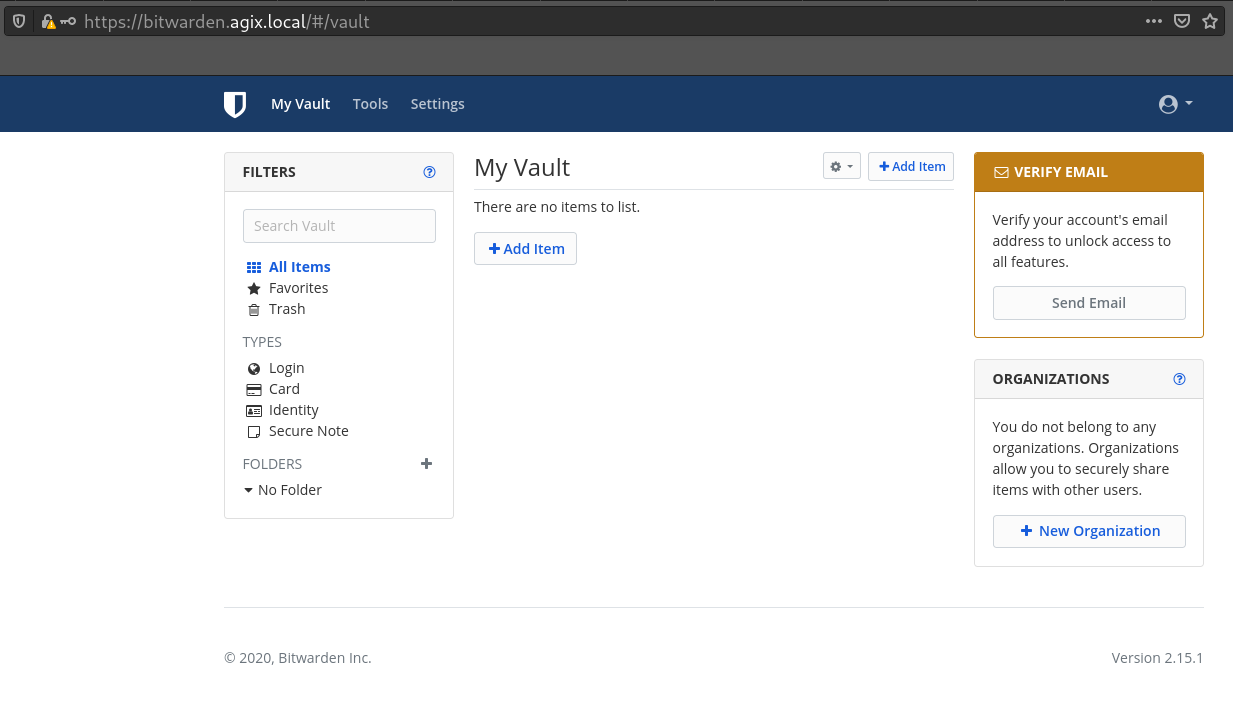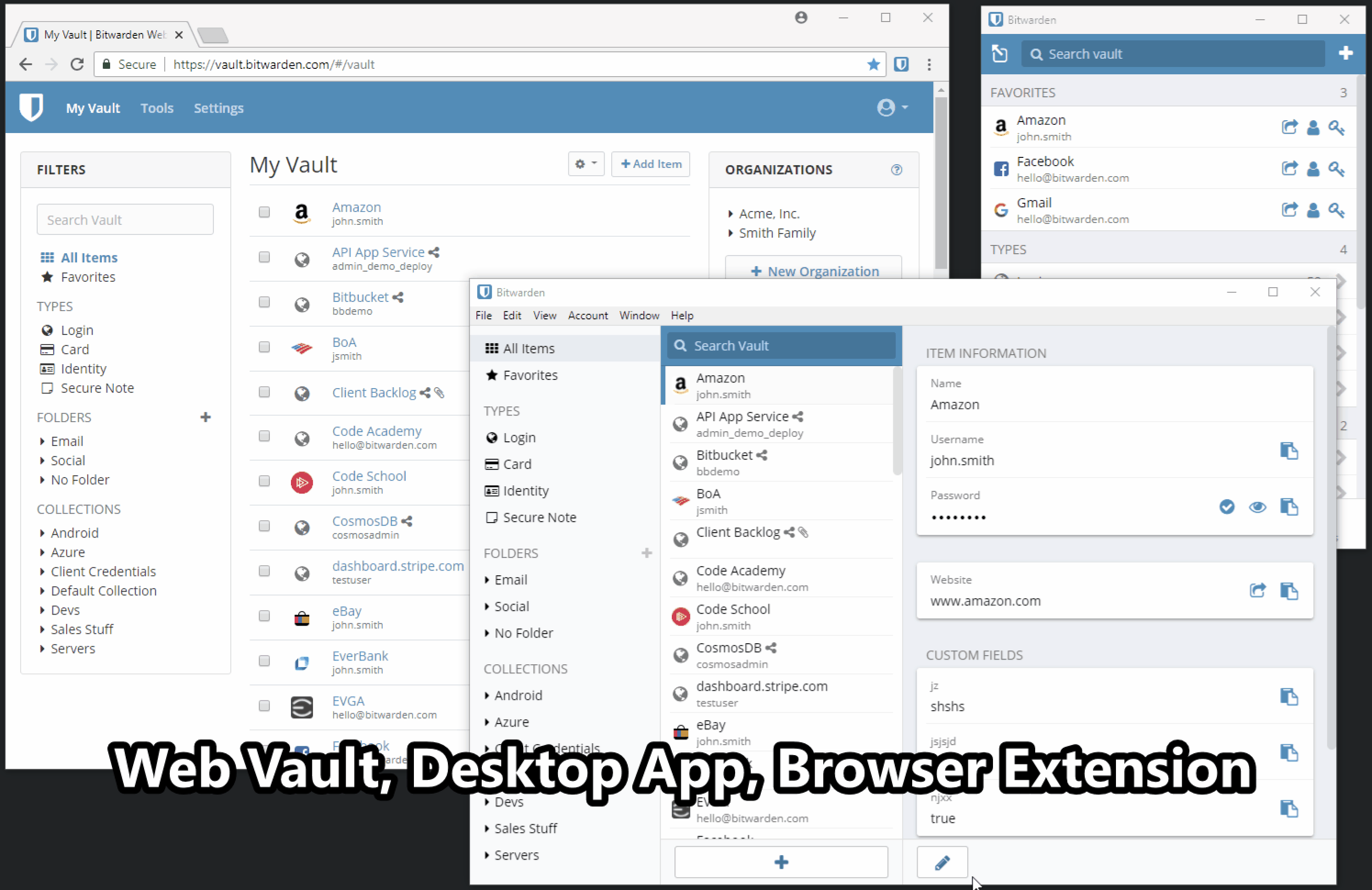I use a self-hosted bitwarden-rs to manage my passwords, and it works greatexcept using docker to run it was using most of the RAM on my cheap VPS fromVultr. Since bitwarden-rs is just a rust program that uses around 16MB of RAM,it seemed overkill to have docker running around it using over 100MB.
- I use letsencrypt with reverse proxy and nextcloud (subdomain-configuration) and I might need to integrate bitwarden in the existing setup. As far as I know, the installer script of bitwarden installs a separate letsencrypt-container which I already have.
- Using Bitwarden-rs without docker. Tuesday, 4 February 2020. I use a self-hosted bitwarden-rs to manage my passwords, and it works great except using docker to run it was using most of the RAM on my cheap VPS from Vultr.Since bitwarden-rs is just a rust program that uses around 16MB of RAM, it seemed overkill to have docker running around it using over 100MB.
- Our letsencrypt container installed and configured with your hostname and appropriate (sub)domains Your own (sub)domain setup correctly and free to dedicate to bitwarden.

UPDATE: - changed linuxserver repo image from letsencrypt to new one, linuxserver/swag UPDATE 15.4.2020. Since DSM 6.2.3-25423 version, Let's Encrypt wild card certificates can be created from DSM Control Panel Security Certificates.
I cloned the repository, checked out the latest tag and then ran
You can use postgresql or mysql if you want but sqlite suites my needs as a single user just fine.
You then need the web UI. Since this is nodejs it takes a lot of RAM to buildso I would recommend just getting the latest release from their web vaultreleases. The version I got was 2.12.0. Extract it to a folder web-fault.
I then setup what will be the app directory; I used /opt/bitwarden but you can use whatever you like.

You will need to run the bitwarden_rs application, but systemd makes this veryeasy. I setup /etc/systemd/system/bitwarden.service
and then enabled and ran it with systemctl enable --now bitwarden.service
Then you just need to have a web server to run it, preferably with some SSLsupport. This is how my nginx configuration looks for it.
I made some extra conf files that all my domains source for nginx to easilymanage Let’s Encrypt and SSL settings, see my blog post about it.

Bitwarden Letsencrypt Dns
And now it should be done. Without a lot of effort you have saved yourself thehassle of running a docker container and are saving some precious memory.
